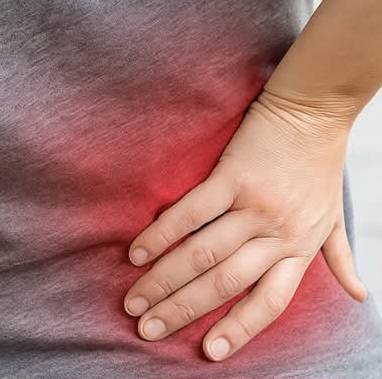Your kidneys work tirelessly to filter waste, balance fluids, and keep your body in check, but they don’t always signal trouble loudly. Noticing subtle changes in your health could be the key to catching kidney issues early, when they’re easier to manage. Let’s explore the signs of kidney concerns, why they matter, and practical steps to support your kidney health, all grounded in trusted advice.
What Do Kidneys are small but mighty organs, about the size of a fist, located near your lower back. They filter around 120–150 quarts of blood daily, removing waste and extra fluid to produce urine, according to the National Kidney Foundation. They also regulate blood pressure, balance electrolytes, and support red blood cell production. When kidney health falters, it can affect your whole body, making early awareness critical.Key Signs of Kidney ConcernsKidney issues often develop quietly, but your body may send subtle clues. Here are some signs to watch for, based on insights from the Mayo Clinic and CDC:Fatigue or Weakness: Feeling unusually tired or weak could signal kidney trouble. Kidneys produce a hormone called erythropoietin, which helps make red blood cells. If kidney function declines, fewer red blood cells may lead to fatigue.Swelling in Hands, Feet, or Ankles: Kidneys normally remove extra fluid. When they struggle, fluid can build up, causing puffiness or swelling, especially in your extremities.Changes in Urination: Noticeable shifts, like urinating more or less often, foamy urine, or blood in urine, may point to kidney issues. Pain or burning during urination could also be a red flag.Shortness of Breath: Fluid buildup in the lungs, linked to poor kidney function, can make breathing harder, even without physical exertion.Persistent Itching: Waste buildup in the blood, when kidneys can’t filter properly, may cause intense itching, often on the back or legs.High Blood Pressure: Kidneys help regulate blood pressure, so unexplained spikes or difficulty controlling it could indicate a problem.If you notice these symptoms, don’t panic, but don’t ignore them either. Consult a healthcare provider for proper testing, like blood or urine tests, to assess kidney function.Why Early Detection MattersKidney issues, if caught early, are often manageable with lifestyle changes or medical care. The CDC notes that chronic kidney disease (CKD) affects about 37 million Americans, yet many don’t know they have it until it’s advanced. Early detection through routine checkups or symptom awareness can slow progression and improve outcomes. For example, managing blood sugar and blood pressure—two leading causes of CKD—can make a big difference.Risk Factors to KnowCertain factors increase your risk of kidney problems, including:Diabetes (the leading cause of kidney disease)High blood pressureFamily history of kidney issuesObesityAge over 60If you have these risk factors, regular screenings are especially important. Share this article with a friend who might benefit from a kidney health checkup!Practical Steps to Support Kidney HealthYou can take proactive steps to keep your kidneys healthy, based on recommendations from Harvard Health and the National Kidney Foundation. Here’s how:Stay Hydrated: Drinking enough water helps kidneys filter waste effectively. Aim for 8–10 cups daily, unless your doctor advises otherwise.Eat a Balanced Diet: Focus on fruits, vegetables, whole grains, and lean proteins. Limit sodium, processed foods, and sugary drinks, which can strain kidneys.Manage Blood Pressure and Blood Sugar: Check your levels regularly, and follow your doctor’s advice to keep them in a healthy range.Exercise Regularly: Aim for 30 minutes of moderate activity, like walking or swimming, most days. Exercise supports blood pressure control and overall health.Avoid Overusing Pain Relievers: Long-term use of NSAIDs (like ibuprofen) can harm kidneys. Use them sparingly and consult your doctor for alternatives.Quit Smoking: Smoking damages blood vessels, reducing blood flow to kidneys. Quitting can improve kidney health and overall wellness.Small changes add up. Pick one or two of these to start, and comment below with your favorite kidney health tip!When to See a DoctorIf you notice any signs mentioned earlier—especially persistent swelling, changes in urination, or unexplained fatigue—reach out to a healthcare provider. Simple tests, like a blood creatinine test or a urine analysis, can check how well your kidneys are working. The National Institute of Diabetes and Digestive and Kidney Diseases emphasizes that early action can prevent complications, so don’t hesitate to ask for a screening, especially if you have risk factors.Myths About Kidney HealthMisinformation can cloud your understanding of kidney health. Let’s clear up a few common myths:Myth: Kidney issues always cause pain.Fact: Many kidney problems, like early CKD, have no pain and show up only through symptoms like fatigue or swelling.Myth: Only older adults need to worry about kidneys.Fact: While age is a risk factor, younger people with diabetes, hypertension, or family history are also at risk.Myth: Drinking cranberry juice prevents kidney disease.Fact: Cranberry juice may help with urinary tract infections, but there’s no evidence it prevents kidney disease.Stick to evidence-based advice, and explore more health tips on our site for reliable information.Final ThoughtsYour kidneys play a vital role in your health, and paying attention to subtle signs can help you catch issues early. By staying hydrated, eating well, and getting regular checkups, you can support your kidneys and overall wellness. If something feels off, trust your instincts and talk to a doctor. Taking small steps today can lead to a healthier tomorrow.*Disclaimer: This article is for informational purposes only and does not substitute professional medical advice. Consult your doctor before making health changesAre Your Kidneys in Trouble? Watch for These Warning Signs
